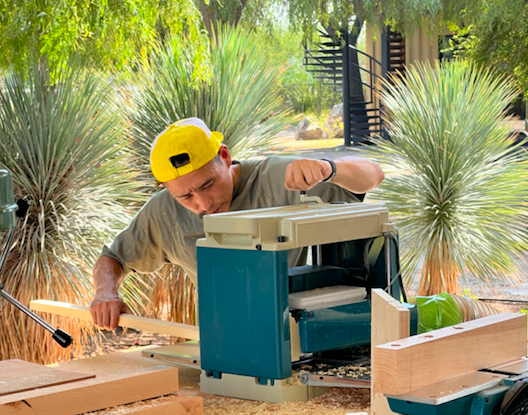
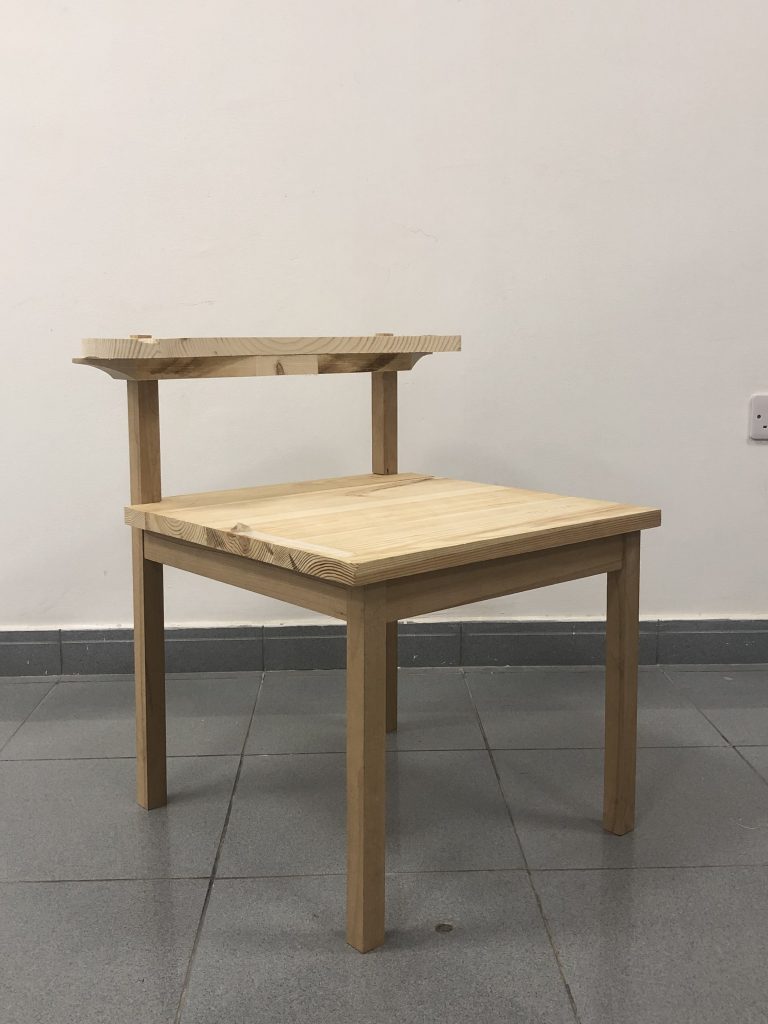
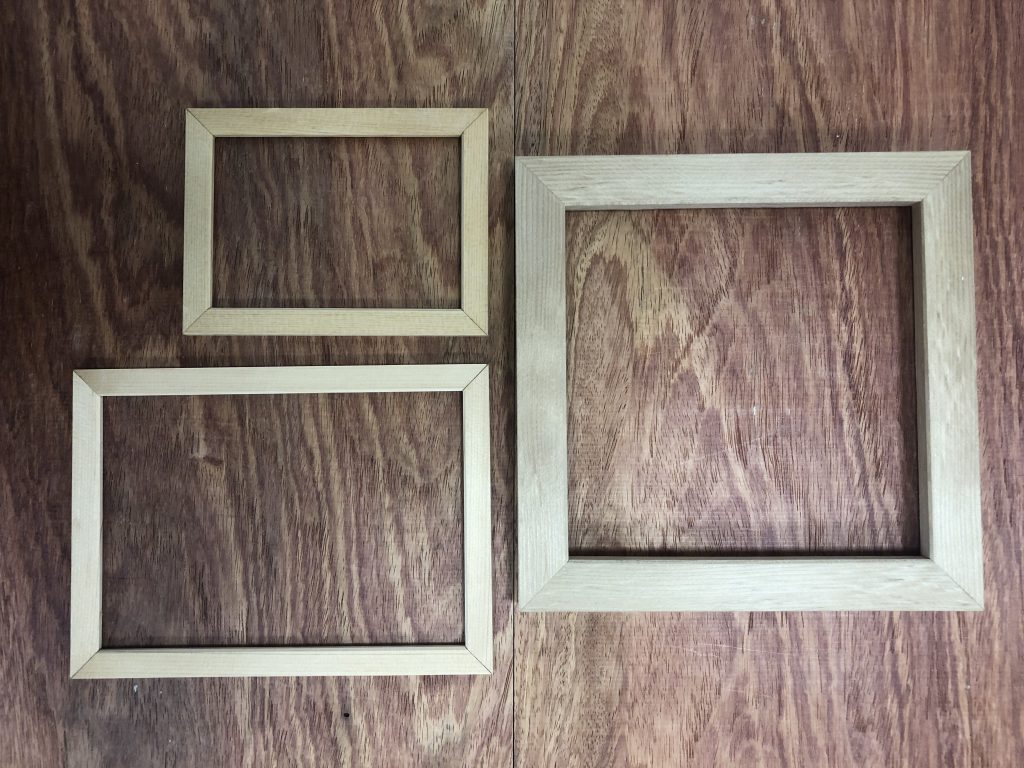
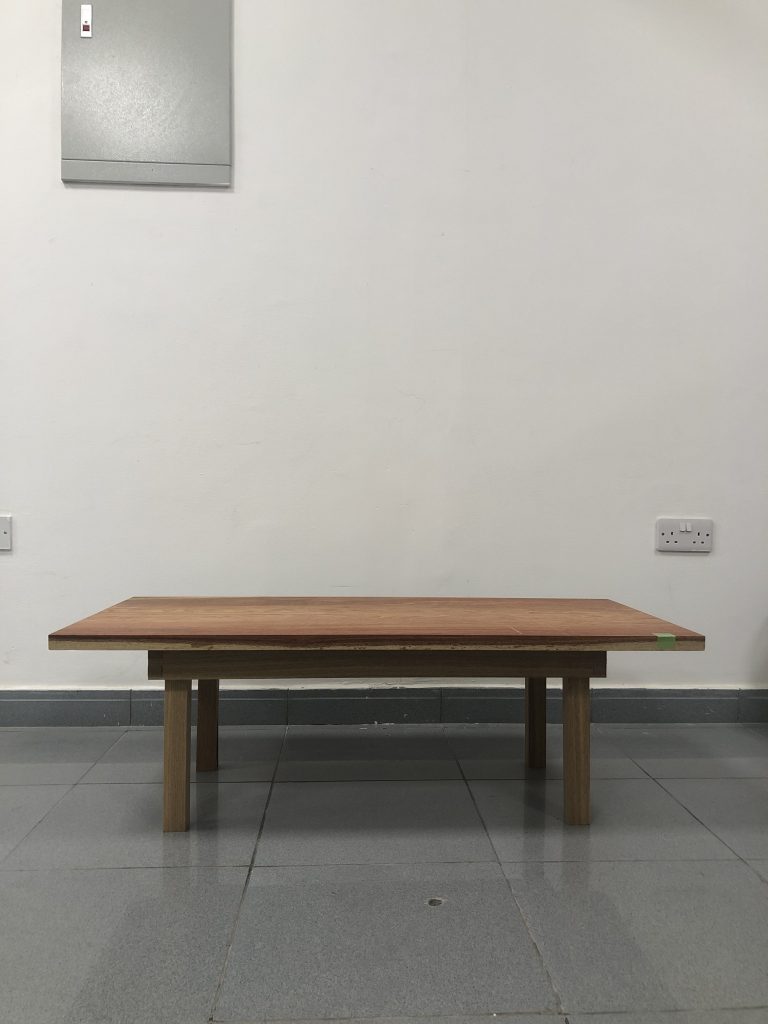




Iwata Houraiya is an atelier specializing in the great Japanese wood craft traditions of cabinetmaking, lacquer, gilding and sculpting. Based in the historic Japanese city of Kyoto, it was founded in 1924 and today is owned by the third generation of the Houraiya family. The atelier’s expert fine woodwork artisans are the guardians of heritage and tradition.
Having handcrafted and restored many of Japan’s sacred Buddhist altars, in recent years they have started to form collaborations internationally to share knowledge and skills with others.
In collaboration with Iwata Houraiya of Kyoto, Tashkeel, a Dubai-based incubator for art and design rooted in the UAE since 2008) ran 8 courses in Japanese Woodwork in Dubai, 30 November – 23 November 2022, supported by Dubai Culture’s Sikka Platform.
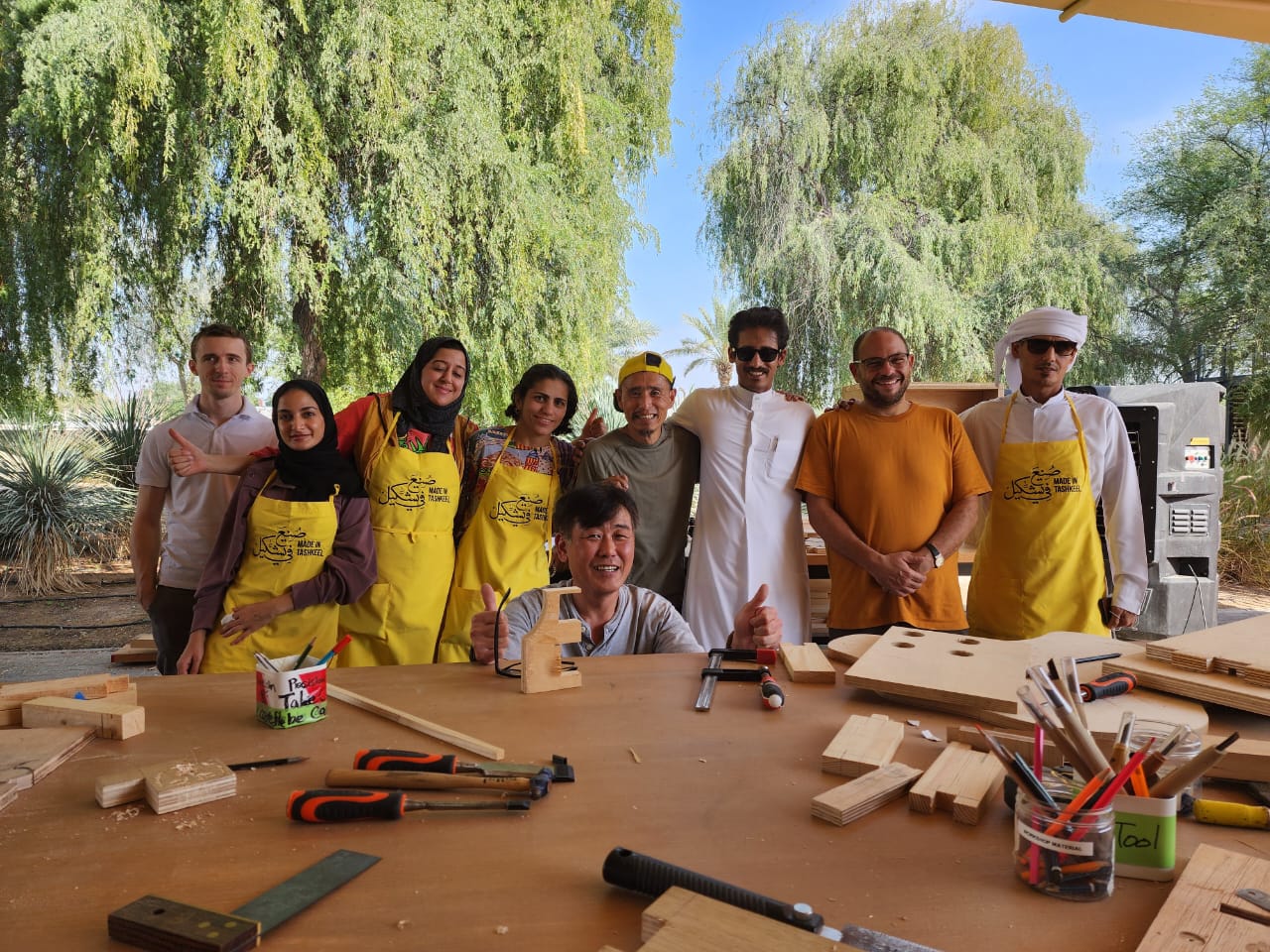
Over the course of four days (16 teaching hours), a total of over 50 participants learnt the basics of the traditional practice of Japanese woodworking (Mokkou). Master craftsmen Satoshi Ichihara and Iwata Houriya led the courses. Tashkeel is deeply thankful to these practitioners who have dedicated their lives to preserving and continuing this ancient craft.
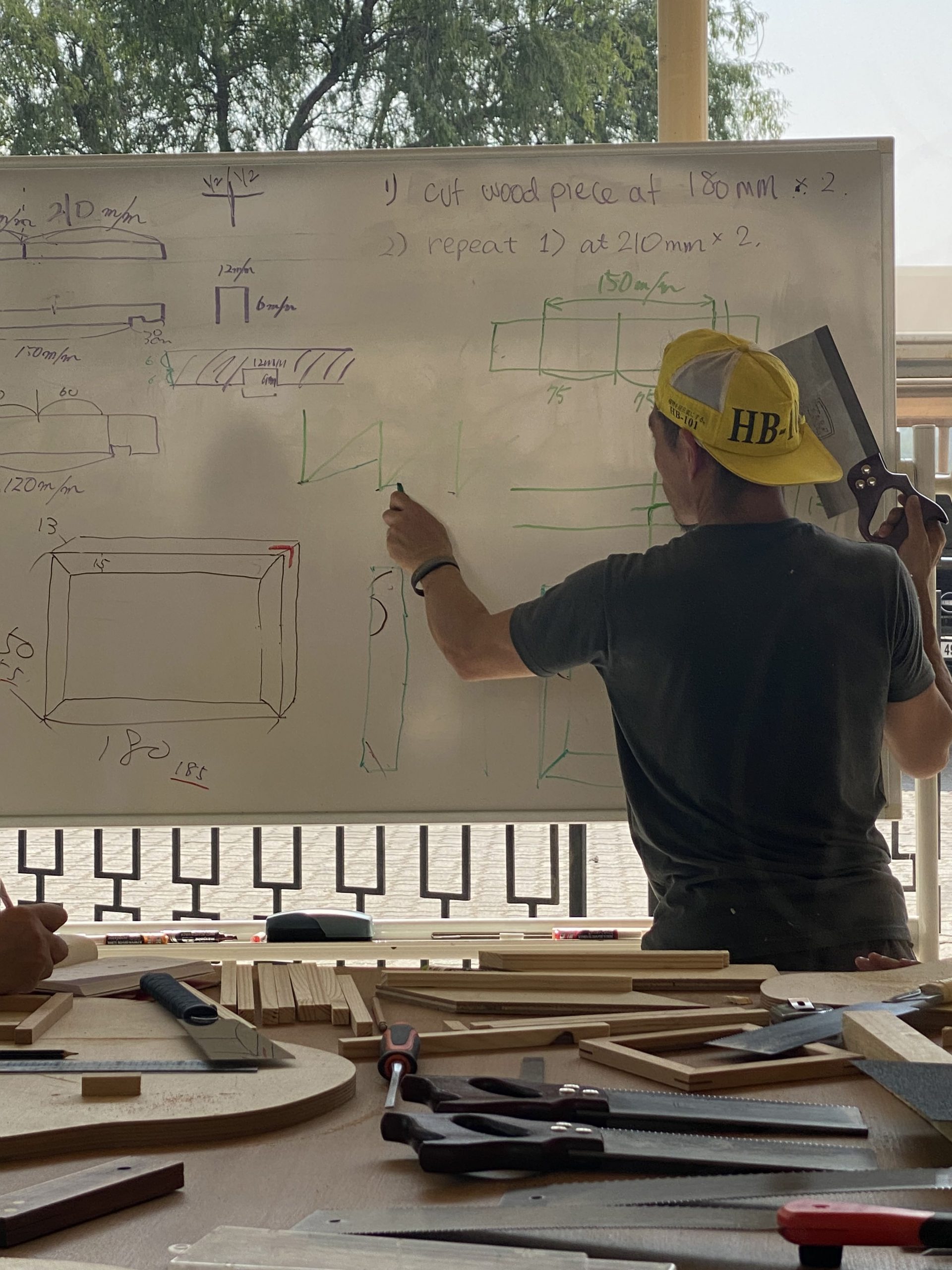
Master craftsman Satoshi Ichihara is the guardian of traditional woodworking techniques cultivated over 1,400 years. He practices under Iwata Houraiya, a company that produces and restores Buddhist altars, altar accessories and statues in addition to designing interior spaces for temples. Iwata Houraiya’s works are made to last for centuries, reflecting the skills of their artisans and recognizing the unique properties of each piece of wood used.
Their activities also extend to the restoration and preservation of historical wooden pieces, ensuring that they will last for many more centuries to come. Satoshi Ichihara became an apprentice to his father, a woodworker, at the age of 23. After committing to the quest of achieving true Japanese beauty through the medium of wood, he embarked on studies in Japanese culture and folklore, two important aspects to his practice.
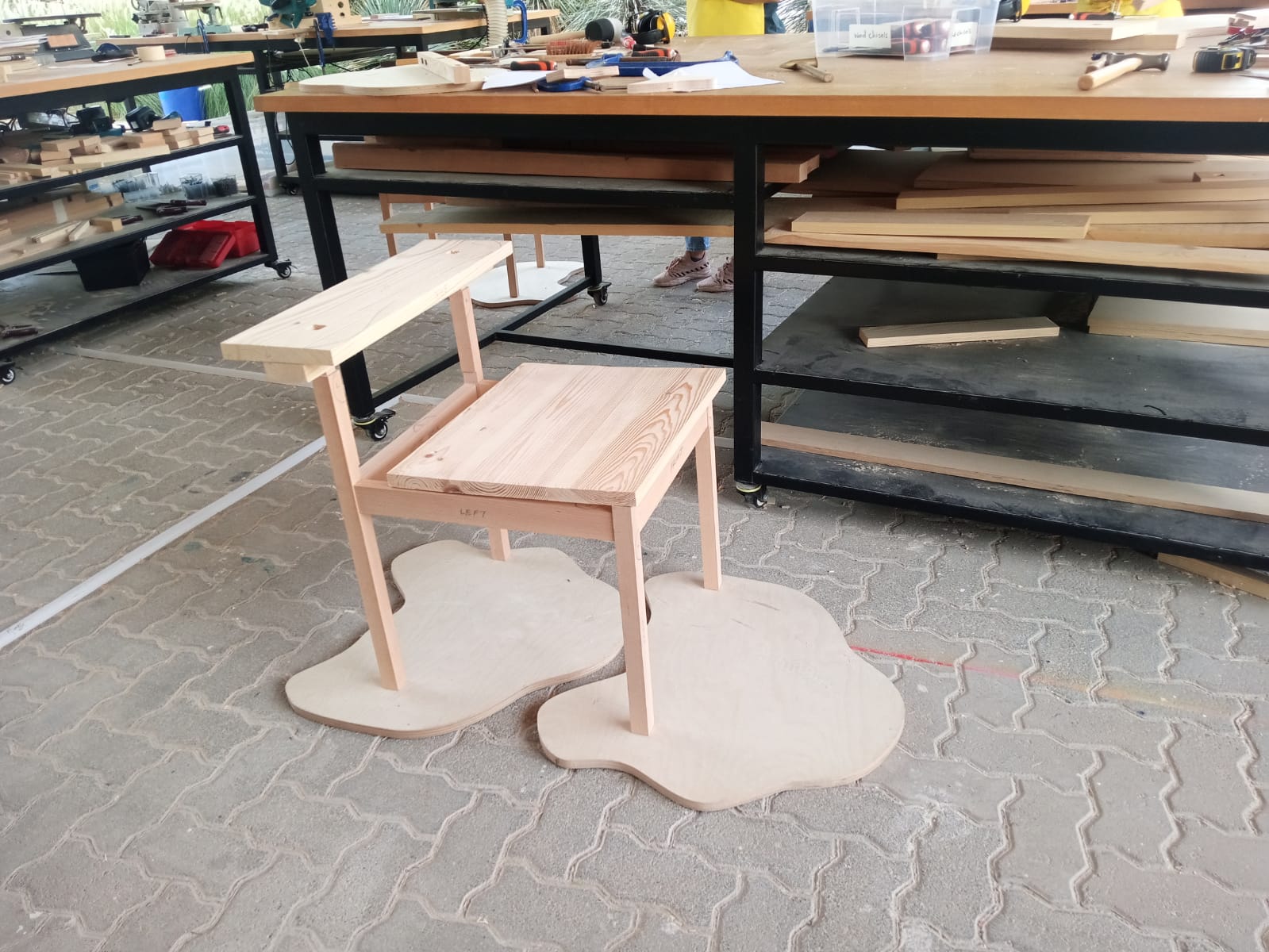
At Iwata Houraiya studio, Satoshi Ichihara continues his journey of creating pieces with his own hands while incorporating a love for philosophy and science. He looks forward to seeing how his industry will embrace technology as it continues to evolve.
“The Iwata Houraiya is a family trade overseeing the work of highly skilled artisans – some who have inherited traditional techniques that have been honed for over more than 1400 years,” A representative of Iwata Houraiya told Arab News Japan.
“Iwata Houraiya saw its beginnings making Buddhist ritual items in wood, but have since expanded its expertise to include the production of temple interiors. These spaces and Buddhist ritual utensils will continue to exist within temples for hundreds of years to come.”
“Iwata Houraiya is committed to incorporating the new into the old, using techniques and skills that have been passed down from generation to generation for the past 100 years,” she added.
The most inspirational thing from Japanese culture that is being adapted at Iwata Houraiya, according to the representative is that “In Japan, and especially in our city of Kyoto –temples, shrines, and Buddhist ritual objects have continuously been culturally central for centuries. At Iwata Houraiya, we restore such centuries-old products of wood and other materials using the that have developed alongside Japanese Buddhism. We are also inspired to create new products that we hope will stand the test of time.”
The representative then elaborated by mentioning the challenges that are faced during their projects. “In projects that we have undertaken, it is essential to work on repairs and restorations in a manner that is consistent with the original plans of centuries ago. At the same time, we must take it upon ourselves to adapt and develop new techniques that are safer in comparison to those of that time period.”
Iwata Houraiya workshop at Tashkeel was the company’s first visit to the UAE, they were surprised by the technological advancements, the sheer abundance of resources and timber at the Dubai-based incubator.
The company will be involved in projects where they can apply their skills and techniques in Buddhist woodworking to the furniture and interior design industry.
For people interested in learning about Japanese wood work, the representative offered the following recommendation: “We invite you to visit us in Japan. Iwata Houraiya operates a studio and factory in Kyoto, Japan. We instruct and guide craftsmen in their skills and use of woodworking tools and machines, as well as give lessons to craftsmen from other countries.”
“We would be happy to help you incorporate our technical instruction into your own work or artisan training,” she added.